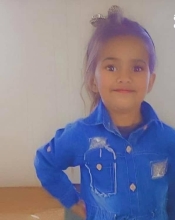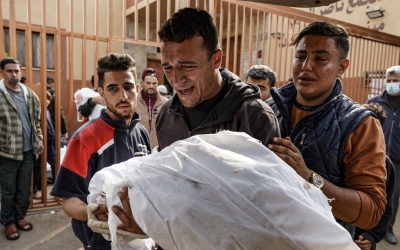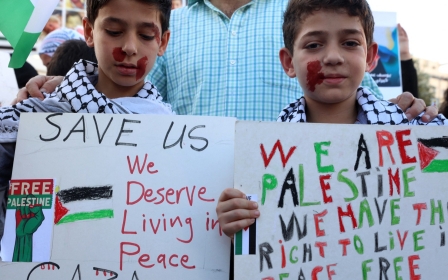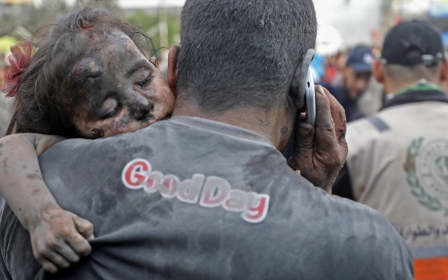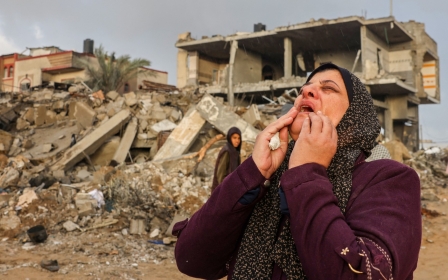Killing children like Ruqaya is not enough for Israel. They took her body too
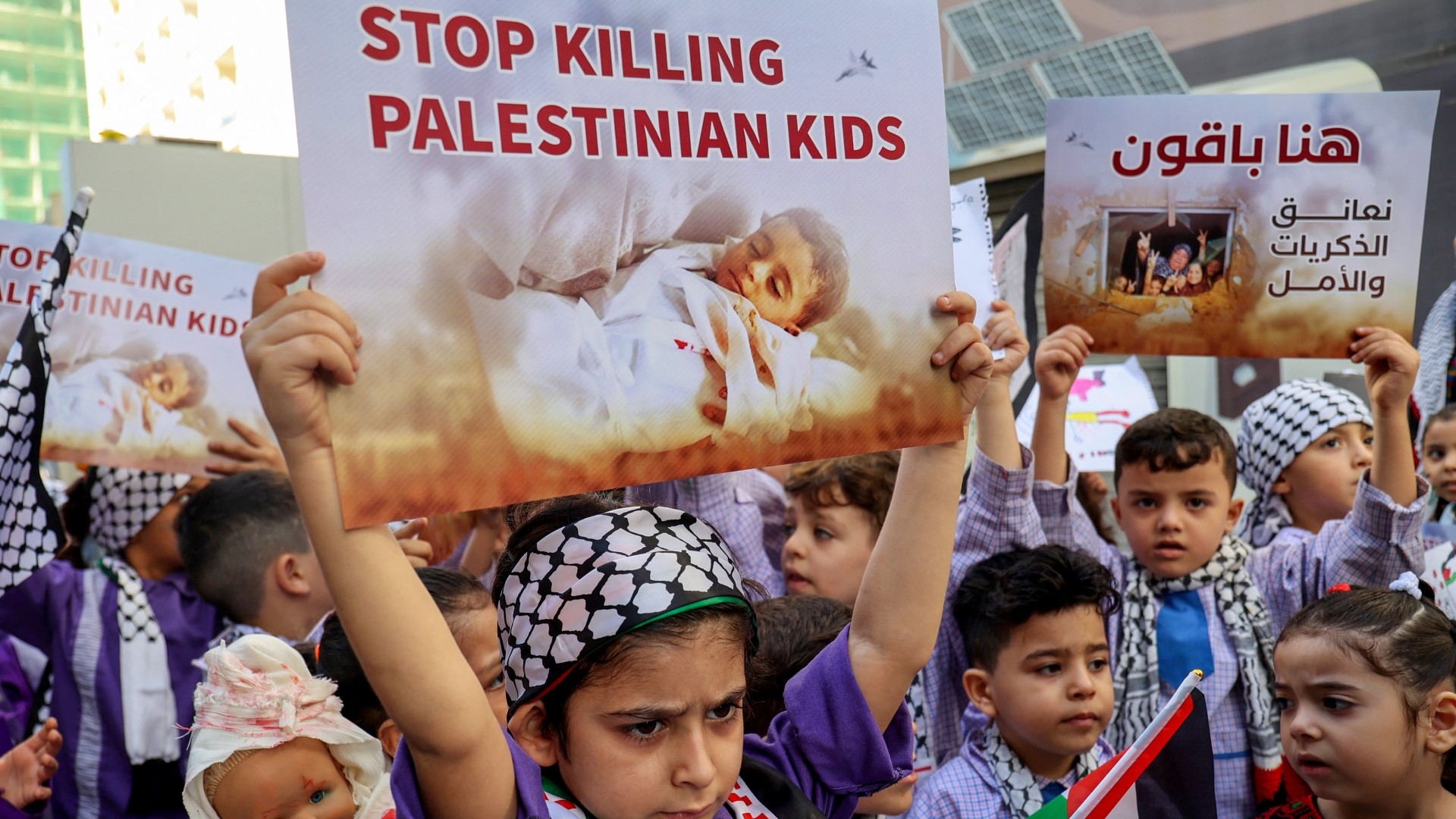
On 16 January, Israeli forces handed over four-year-old Ruqaya Jahalin’s body to her family to be buried.
Israeli soldiers shot and killed Ruqaya while she was in a van with her mother at an Israeli checkpoint near the Palestinian village of Beit Iksa in the central occupied West Bank on 7 January, then confiscated her body. For nine excruciating days, Israeli forces withheld her body from her family.
In many ways, Ruqaya was an exception.
Israeli forces have withheld the bodies of at least 31 Palestinian children since June 2016, according to documentation collected by Defense for Children International - Palestine (DCIP). Four of the children’s bodies have since been released to their families, while 27 Palestinian children’s bodies remain withheld by Israeli authorities.
The rest remain in Israeli authorities’ custody, some for years, so their families are unable to lay their children to rest. That’s because depraved indifference to Palestinian life, even in death, is Israeli state policy.
New MEE newsletter: Jerusalem Dispatch
Sign up to get the latest insights and analysis on Israel-Palestine, alongside Turkey Unpacked and other MEE newsletters
Among the Israeli government’s uniquely cruel policies targeting Palestinian families is a policy of confiscating human remains.
In September 2019, the Israeli Supreme Court approved the practice of seizing Palestinian human remains after several legal challenges.
Just two months later, on 27 November 2019, Israeli Defence Minister Naftali Bennett ordered all bodies of Palestinians alleged to have attacked Israeli citizens or soldiers to be withheld and not returned to their families.
Last year, Israeli forces conducted near-daily incursions into Palestinian communities across the occupied West Bank - which only intensified after 7 October, when the Israeli military launched a massive military offensive on the Gaza Strip where they continue to carry out genocidal attacks.
No accountability
The Israeli military killed 12 Palestinian boys last year and withheld their bodies from their families. Only one child’s body was released.
This year promises more of the same. Of the 11 Palestinian children killed by Israeli forces so far this year in the occupied West Bank, four of their bodies have been confiscated, including Ruqaya's.
Follow Middle East Eye's live coverage of the Israel-Palestine war
Israeli soldiers opened fire indiscriminately toward two Palestinian vehicles, including the minivan carrying Ruqaya, her mother, and other Palestinians through an Israeli military checkpoint.
In order to act so brazenly, Israeli forces must know that they will not be held responsible for their actions, even if they kill a Palestinian preschooler.
No Israeli soldier or government official has lost their job, much less been held accountable in court, for killing Ruqaya, who would have turned five in February.
The other Palestinian children whose bodies Israeli authorities have confiscated are teenage boys, most of whom are accused of attacking Israeli soldiers.
Seizing a child’s body after they allegedly attempted to carry out an attack prevents an independent autopsy and any other evidence collection that could be used to determine if Israeli forces’ lethal force was justified or unlawful.
In Ruqaya’s case, Israeli forces claimed to withhold her body to conduct an autopsy, against her parents’ wishes. Killing a Palestinian child and then taking their body exemplifies Israeli forces’ efforts to exert total control over every aspect of Palestinian life and death.
Violating international law
Israeli authorities’ policy and practice of confiscating and withholding Palestinian bodies is a violation of international humanitarian law and international human rights law, which include absolute prohibitions on cruel, inhuman, or degrading treatment, as well as stipulate that parties of an armed conflict must allow burial of the deceased in an honourable way.
For Palestinian families, the practice amounts to collective punishment in violation of international humanitarian law.
These families, about two dozen of them, continue to wait in agony to bury their children.
The Abu Juhaisha family is waiting to bury cousins Odai, 15, and Mohammad, 17.
The Abu Hussein family is waiting to bury 16-year-old Ammar.
The Hmaidat family is waiting to bury Khaled, 16, who Israeli forces shot in the chest and then prevented ambulance crews from reaching his bleeding body.
For Israeli forces, apparently, it isn’t brutal enough to shoot and kill Palestinian children: they must continue torturing their families by depriving them of cultural and religious practices that allow them to grieve.
There is no shortage of Israeli state violence against Palestinians on full display to the world as the genocide of Palestinians in Gaza is broadcast live on social media, and South Africa has detailed Israel’s crimes in the International Court of Justice.
Confiscating and withholding the bodies of Palestinian children shot and killed by Israeli soldiers is one more injustice on the long list of cruelties enacted by the Israeli government onto Palestinian families.
The views expressed in this article belong to the author and do not necessarily reflect the editorial policy of Middle East Eye.
Middle East Eye delivers independent and unrivalled coverage and analysis of the Middle East, North Africa and beyond. To learn more about republishing this content and the associated fees, please fill out this form. More about MEE can be found here.



